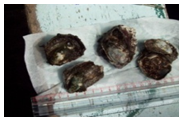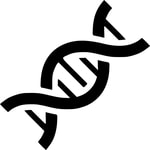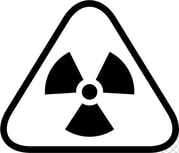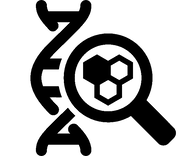- HOME
- SERVICES
-
ONE HEALTH Epigenomics and Microbiomes, From Soil to People
-
ONE HEALTH PROJECTS
>
- THE MANGROVE EPIGENOME (MangroveENCODE) PROJECT >
-
THE SHRIMP EPIGENOME (ShrimpENCODE) PROJECT
>
- penaeid shrimp genomes
- pilot genome sequence of first SPF Penaeus vannamei
- epigenetic genes of shrimp
- transposable elements of Penaeus vannamei
- contaminants of wild and farmed shrimp (metals, glyphosate, Bt, EDCs)
- glyphosate-free shrimp feeds
- transgenerational toxicological effects of glyphosate on shrimp
- THE COASTAL PEOPLE EPIGENOME (ChildrenENCODE) PROJECT >
-
ONE HEALTH PROJECTS
>
- ONE HEALTH NEWS!
- PUBLICATIONS
- MEETINGS - ADWARDS
- CONTACT US
The long-term goal of MangroveENCODE (2017-2027) is to study the interactions of greenhouse gas fluxes (CO2, CH4 or N2O), carbon sequestration and microbial communities in light of climate change and environmental degradation-related health issues. The plan is to obtain baseline information for future studies to test mechanism-driven hypotheses to examine the interactions of CO2 with endocrine disrupting chemicals (EDCs) and the microbiome of mangrove sediments, using computational ecology tools. In 2017, a pilot study to determine best technologies for assessment of the microbiome, CO2, EDCs (Glyphosate, metals) and microbial transgene-based insecticides (Bacillus thuringiensis, Bt) in agricultural soil and sediment of mangroves and adjacent shrimp ponds, for conservation of selected mangrove habitats. Dr. Jim Tang at Marine Biological Laboratories in MA, who performs research on greenhouse gas emissions and blue carbon stocks in coastal salt marshes, have helped us with preparation of a protocol to collect 1m cores.
Preliminary results and in-depth literature reviews will be presented at the 113th annual meeting of the National Shellfisheries Association (NSA) in Charlotte, NC on March 21-26, 2021, including the following topics among others: microbiomes of agricultural soil and mangrove sediment; mangroves species worldwide, genome size of mangroves, transposable elements (TEs) in mangrove genome, Gypsy LTR retrotransposon, Vibrio parahaemolyticus and Vibrios spp associated with infectious AHPND disease of shrimp; Bt-based biolarvicides like BAVITEC used to control mosquito vectors of Zika virus in coastal areas; stacked microbial transgenes, CO2 in native and replanted mangroves forests, CO2 in seagrass and the blue carbon program.
Preliminary results and in-depth literature reviews will be presented at the 113th annual meeting of the National Shellfisheries Association (NSA) in Charlotte, NC on March 21-26, 2021, including the following topics among others: microbiomes of agricultural soil and mangrove sediment; mangroves species worldwide, genome size of mangroves, transposable elements (TEs) in mangrove genome, Gypsy LTR retrotransposon, Vibrio parahaemolyticus and Vibrios spp associated with infectious AHPND disease of shrimp; Bt-based biolarvicides like BAVITEC used to control mosquito vectors of Zika virus in coastal areas; stacked microbial transgenes, CO2 in native and replanted mangroves forests, CO2 in seagrass and the blue carbon program.
- HOME
- SERVICES
-
ONE HEALTH Epigenomics and Microbiomes, From Soil to People
-
ONE HEALTH PROJECTS
>
- THE MANGROVE EPIGENOME (MangroveENCODE) PROJECT >
-
THE SHRIMP EPIGENOME (ShrimpENCODE) PROJECT
>
- penaeid shrimp genomes
- pilot genome sequence of first SPF Penaeus vannamei
- epigenetic genes of shrimp
- transposable elements of Penaeus vannamei
- contaminants of wild and farmed shrimp (metals, glyphosate, Bt, EDCs)
- glyphosate-free shrimp feeds
- transgenerational toxicological effects of glyphosate on shrimp
- THE COASTAL PEOPLE EPIGENOME (ChildrenENCODE) PROJECT >
-
ONE HEALTH PROJECTS
>
- ONE HEALTH NEWS!
- PUBLICATIONS
- MEETINGS - ADWARDS
- CONTACT US





























